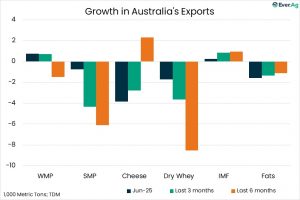
ACC Minister Carmel Sepuloni wants to introduce new rules for the ‘accredited employer’ programme. (Source: 1News)
ACC Minister Carmel Sepuloni wants to introduce new rules for ACC’s Accredited Employers Programme, which is used by more than 100 major companies across the country. The changes will affect 25% of the New Zealand workforce.
Under the scheme, employers are given a discount on their levies if they promise to care for workers hurt on the job. They are bestowed with powers normally reserved for the Government and trusted to fund the rehabilitation and compensation of injured staff.
But in an interview today, Minister Sepuloni admitted the programme had flaws.
“There have been instances where it is less than adequate, and we don’t want that to happen,” she said.
“We want to make sure that we do have measures in place so where employers are not working that there is the ability to exit them from the programme.”
The scheme is used by some of the country’s most recognisable businesses and entities, including Police, Air New Zealand, Fonterra, Fletcher Building, Foodstuffs and the Ports of Auckland, as well as multiple universities, banks and councils.
1News highlighted the programme earlier this year as part of an investigation into Talley’s Group, one of the country’s biggest employers using the programme.
The story revealed an ACC monitoring report in February 2020 found “consistently inaccurate” payments by the Talley’s Group to workers hurt at its meatworks.
Minister Sepuloni says the proposed changes will “strengthen” the accredited programme “by ensuring employers are held to account”.
She is seeking public consultation on the proposed changes, including:
- New health and safety assessments.
- A new performance monitoring model.
- Strengthening of claims and injury management assessments.
- Increased flexibility to choose a claims management period.
The changes would include an independent review panel, to assess how employers are performing on an “ongoing basis”.
Minister Sepuloni pointed out that despite clear mistakes, no company had ever been removed from the AEP before.
“Currently the way in which it’s set up, it means that perhaps there’s an annual audit, there’s a spot check, but there’s not the ongoing type of monitoring that we need to ensure that programmes are actually working for employees,” she said.
“I think, with what is being proposed here now when employers are unable to comply there will be a greater chance of them being let go from the scheme.”
But two experienced lawyers were sceptical, saying the programme still gives too much power to private companies.
ACC lawyer Peter Sara has helped many workers challenge accredited employers. He described the AEP as an “experiment which has failed”.
“It continues to fail, but if there is some strong commitment to continue with this programme then, no, I don’t think that these reforms go anywhere near far enough in terms [of] actual reform,” he said.
“I think the Minister’s statements are lofty aspirations, but I suppose the cynic in me, after all these years thinks, well, is that really going to happen?”
Sara said there was still a clear “conflict of interest” for employers.
“They’re wearing two hats – they’re wearing the hat of an employer and they’re wearing the hat of an ACC provider – and the two are not good bedfellows, they just don’t work together,” he said.
Wellington lawyer Hazel Armstrong, who is spokesperson for the ACC Futures Coalition, agreed that the programme should be scrapped.
“There is no place for the accredited employer’s scheme. I’d rather it was abolished, because it’s inherently problematic for the worker,” she said.
However, the Minister stuck with the programme today, confident the reforms would give it new teeth.
“The vast majority [of accredited employers] do work, I don’t think this is a situation where we need to throw the baby out with the bathwater,” she said.
“I think there is a higher level of scrutiny required and that’s what we’ll be consulting on, we want to make it the best scheme possible.”
A full consultation document will soon be released. It will be open for public response until Thursday November 3.


















